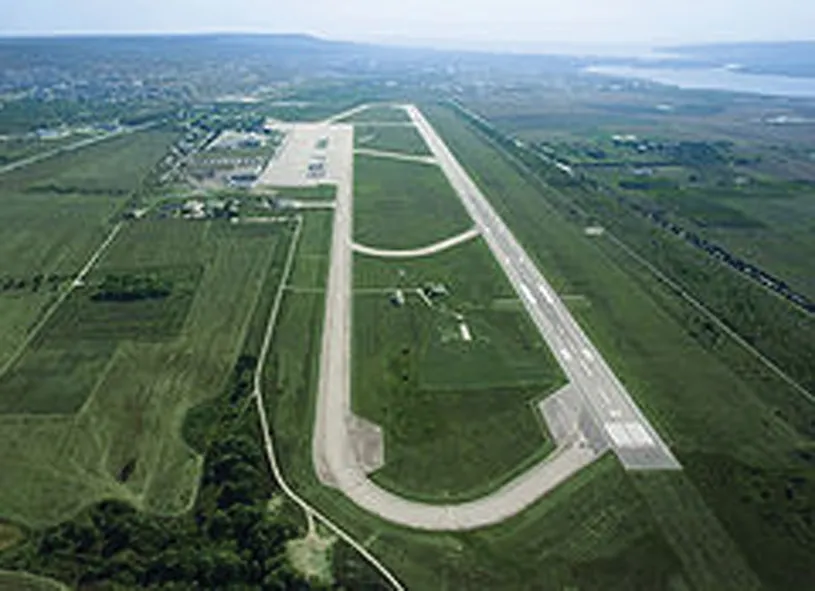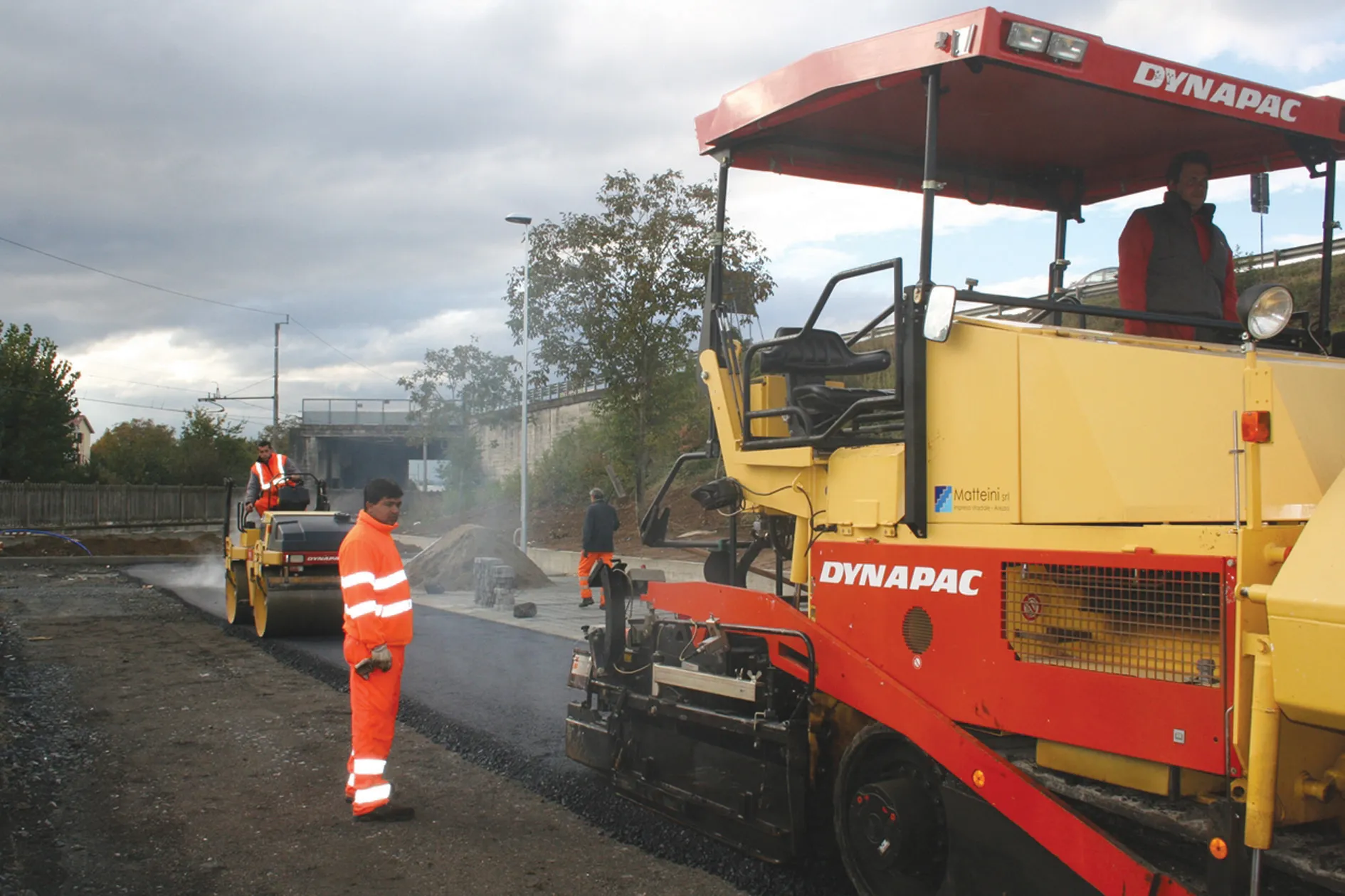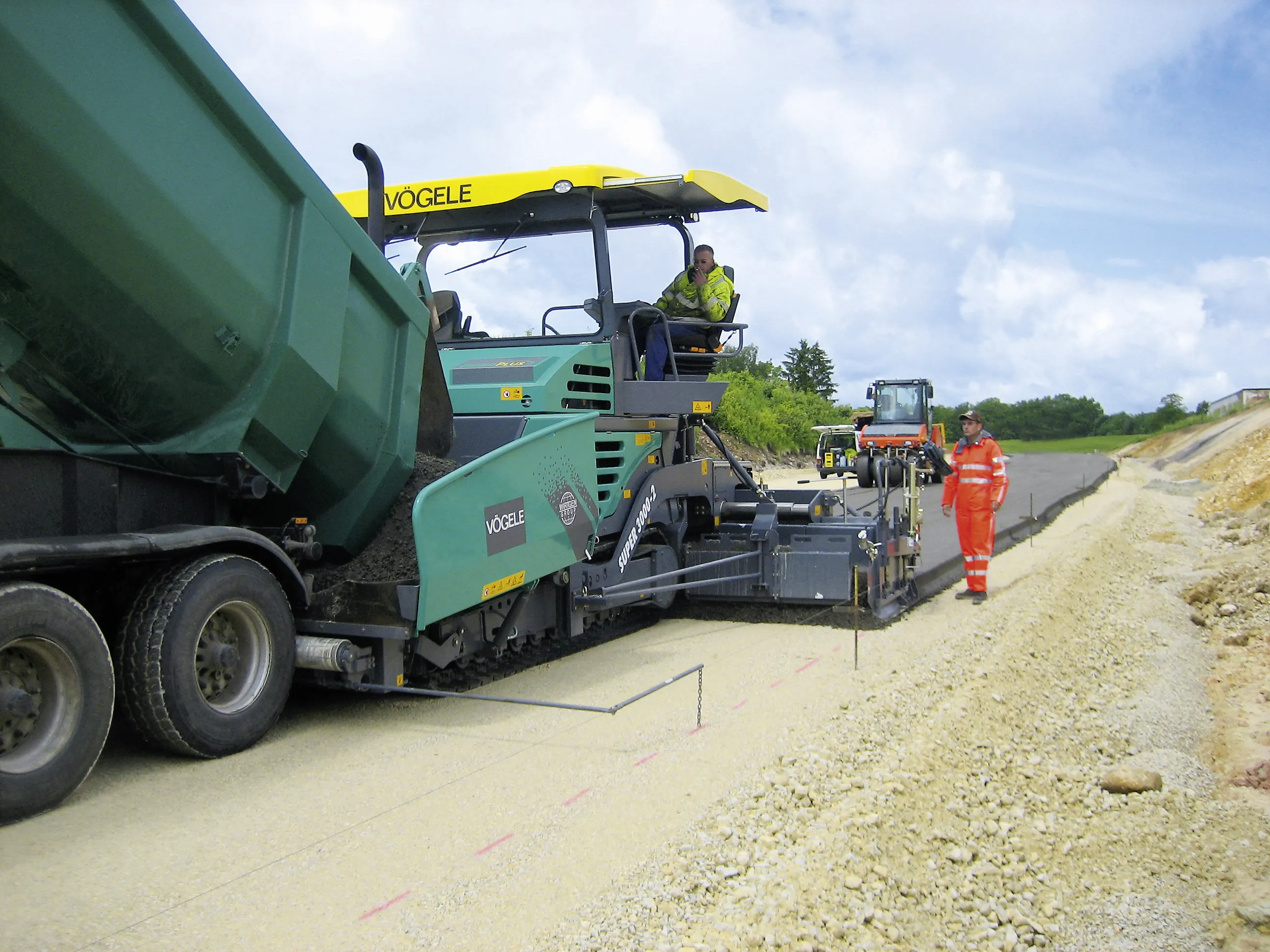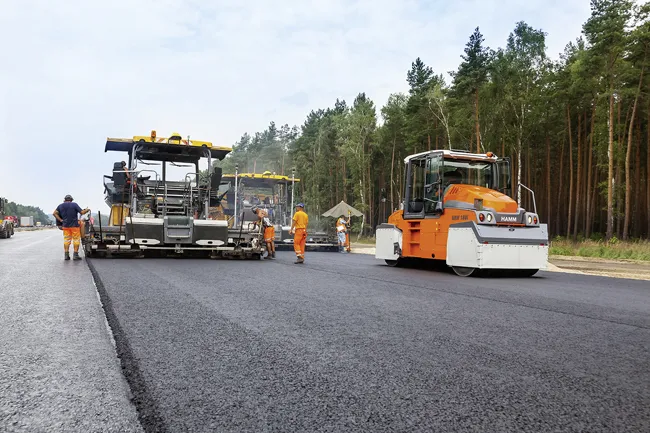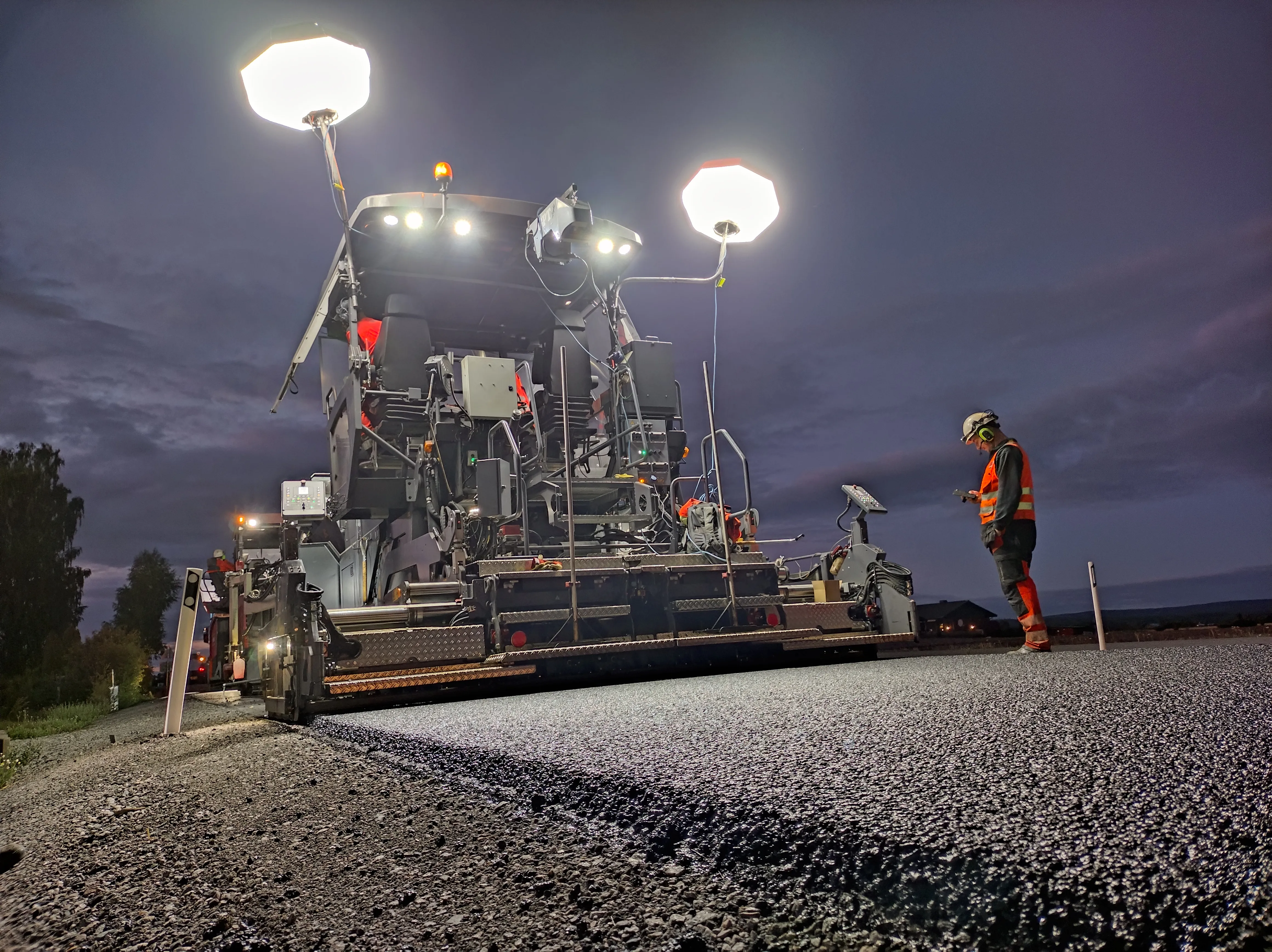
Using a spray paver, a contractor can apply emulsion and carry out asphalt paving in a single operation. The systems are used for placing thin overlay as well as conventional binder and surface courses.
According to the manufacturers of spray paving equipment, an optimal composite layer of the asphalt is achievable using spray paving and this helps to ensure the longevity of road surfaces.
Some firms, such as Spraypaver in the US, offer separate spray paver units that can be bolted onto an asphalt paver from most manufacturers. Until now, only Vӧgele has offered a spray paver unit as a complete package on one of its own asphalt pavers, the SUPER 1800-3i SprayJet.
According to Vӧgele, a key advantage of its machine is that operation of the spray module has been integrated into the firm’s familiar ErgoPlus 3 operating concept. As the system uses the same type of controls as on a standard paver (but with added functions), this simplifies the operating process and ensures high quality results.
However, that situation changed when rival firm Dynapac introduced its SD2500CS PROTAC spray paver in late 2022. As with the Vӧgele model, this features the standard Dynapac control system but with added functions. For all three of these options, the spraying system is fitted on a conventional paver. Spray bar units are located on the paver so as to ensure an even layer of emulsion is spread on the surface. As the paver moves forward, it then lays the asphalt layer directly on top using the conventional screed unit. Emulsion is stored in a separate tank mounted on the paver and which forms part of the additional spray paver package.
According to Dynpac, its SD2500CS PROTAC spray paver is designed for use in two application areas. The first is for the application of thin asphalt surface layers using a thin layer in hot paving on sealant. The second is for road repair, as well as for new road construction and everyday asphalt paving tasks.
The SD2500CS PROTAC sprays emulsion and applies asphalt in a single operation. This increases operational efficiency while saving resources. In addition, the road can also be opened faster to traffic, reducing construction costs as well as the disturbance caused by road works. The firm also says that studies have confirmed that DSH-V surfaces have a noise reduction potential of about 5dB(A). Moreover, the low thickness layer helps conserves resources, material use, time and energy.
Veidekke, one of the largest construction companies in Scandinavia, used the SD2500CS PROTAC on a night job near Oslo, Norway. The crew made successful use of the machine and reported no problems when operating the spray paver for the first time during a nighttime operation.
Meanwhile, in Germany, contractor JOHANN BUNTE Bauunternehmung was able to rehabilitate the surface and binder courses of a section of highway successfully in a short time on the A3 near Duisburg. The paving team rehabilitated an area of 60,000m² in just 55 hours using four Wirtgen milling machines and six Vӧgele pavers.
Planning was important for rehabilitating a 3.6km section of the A3 motorway near Duisburg. As this busy route carries 120,000 vehicles each week-day, the responsible highways authority, Straßen.NRW, decided to carry out the rehabilitation project by closing the road. “This means that in a weekend, we can complete work which would otherwise have held up traffic for several weeks,” said Thomas Oehler, head of department at Straßen.NRW.
The binder course on the A3 was paved by two Vӧgele SUPER 2100-3i pavers, each supported by an MT 3000-2i Offset material feeder.
The schedule was tight: work started on a Friday at 10pm with a full road closure in both directions. After that, the right-hand carriageway, which is made of concrete and did not require rehabilitation, was separated from the adjacent asphalt lane using a side milling wheel.
At 11pm, four Wirtgen milling machines started removing the surface and binder courses. Asphalt paving started before milling work was complete at 7.15am on the Saturday morning. Paving had to be finished by 10.30am on the Sunday to allow time for tasks such as applying road markings.
To enable 3.6km of motorway to be rehabilitated in 55 hours, two spray pavers worked on the surface course simultaneously in each direction of travel, each supplied by a material feeder. Just 27 hours was available to pave the area of 60,000m². The team from contractor opted to use six Vӧgele pavers.
Two SUPER 2100-3i machines first paved the binder course. One of the two pavers worked in one direction of travel while the other paver started at the other end of the job site. The surface course consisting of low-noise stone mastic asphalt (LOA) was paved by two SUPER 1800-3i SprayJet machines using the hot-to-hot method.
Three mixing plants were commissioned with production of the asphalt to guarantee material supply on this tight schedule, with another plant in reserve. A fleet of 130 trucks made 500 trips to transport asphalt to the job site between the junctions at Duisburg-Kaiserberg and Breitscheid. In all, 16,000 tonnes of asphalt was used, 12,000 tonnes for the binder course and 4,000 tonnes for the surface course.
Two Vӧgele MT 3000-2i feeders supplied the mix from the trucks to the pavers. The pivoting conveyor meant that the Vӧgele feeder could supply two pavers with mix, allowing the two paver operators to focus on the paving process.
The Vӧgele SUPER 1800-3i SprayJet spray pavers sprayed on the bitumen emulsion and paved the asphalt surface course in one operation. In addition to saving time, the SprayJet technology had other benefits. As the emulsion film was paved over immediately following application, construction vehicles were unable to drive on top and damage it, improving interlocking and helping to optimise the road surface life.
At 5am on the Monday the A3 was reopened to traffic.


